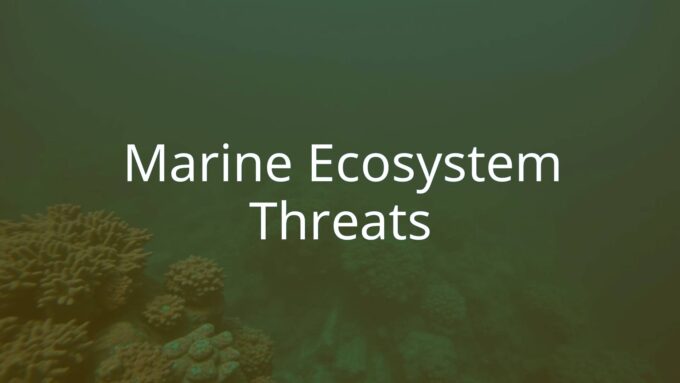A sustainability consultant is a professional who helps businesses, organizations, and governments use practices that are better for the environment and society. As concerns about the environment grow and people want ethical companies, these consultants are becoming more important. They help groups find ways to lower their impact on the environment, be more socially responsible, and ensure their operations are profitable in the long run, all while encouraging methods that are good for people and the planet.
Sustainability consultants combine science, business sense, and planning skills. They do more than identify problems-they design solutions and help organizations include sustainability in their main operations and strategies. This field is growing quickly, thanks to laws like the EU’s Corporate Sustainability Reporting Directive (CSRD), which now affects many companies around the world. More businesses are also realising that being sustainable can save money and make people trust their brand more.

What is a sustainability consultant?
A sustainability consultant is an expert who advises organizations on including sustainability in their daily work. They mix business knowledge with a deep understanding of environmental and social issues. The main aim is to help groups meet environmental, social, and governance (ESG) targets, often without hiring a full-time sustainability team.
Key responsibilities of a sustainability consultant
Sustainability consultants do a range of tasks, depending on the project or industry. Some of the main duties include evaluating a company’s impact on the environment by checking energy use, carbon footprint, water usage, and waste. For example, they may look at how much pollution an office produces or how much waste comes from a factory. After collecting this information, they find places that can be improved.
They also develop practical plans for long-term improvement, like starting recycling programs, reducing use of resources, or improving supply chain processes. When these ideas are approved, they help put them into practice. This may mean hiring new staff, buying better equipment, training employees, and making sure rules are followed. They also help share information with stakeholders and run campaigns to support new practices and attract customers who care about the environment, working with teams like finance, HR, and marketing to keep things consistent and affordable.

Types of sustainability consulting: environmental, social, and governance (ESG)
Sustainability consulting covers three main areas: Environmental, Social, and Governance (ESG). ESG is a way to check how well a company performs in these areas. ESG consultants help businesses include sustainable and fair practices in their operations, looking at things like environmental effects, social responsibility to workers and communities, and company leadership structures.
ESG consulting aims to create better results, reduce problems, follow the law, and help companies meet what investors and the public expect. While there are similarities, traditional sustainability consulting looks more widely at all parts of a company’s long-term success, while ESG is focused on specific numbers and actions that decision-makers and investors care about.
Difference between sustainability consultants and environmental consultants
“Sustainability consultant” and “environmental consultant” might sound the same, and sometimes people do both jobs, but there are differences. Environmental consultants mostly focus on issues like pollution control, waste, and following environmental rules, often working on things like reducing damage from a specific project or product.
Sustainability consultants, however, look at the bigger picture. Alongside environmental impact, they also consider social factors, workers’ rights, economic stability, and community involvement. Their goal is to offer solutions good for people, the planet, and business profits. In other words, while environmental consulting is part of sustainability work, sustainability consulting covers a wider range of issues, not just environmental ones.
What does a sustainability consultant do?
The daily work of a sustainability consultant can be very different based on the client’s needs and industry. Still, their main steps are checking current practices, planning improvements, helping with changes, and teaching others how to act more responsibly.
Checking environmental impact and sustainability performance
One important job is to clearly understand an organization’s environmental effect. This requires collecting and analyzing detailed data, such as through energy audits or environmental impact checks. They might track carbon emissions, water and energy usage, waste, and air quality. Using different tools, they find where things aren’t working well so future efforts can be measured.
Creating strategies and action plans
Once they know the current situation, consultants plan what to do next. These plans are made especially for each business and set clear goals such as lowering carbon emissions, saving water, or using less energy. They might also help companies design products or packaging that are easier on the environment or suggest using more green energy.
Guiding ESG and sustainability reporting
Being open about progress is important. Consultants help companies prepare sustainability reports to comply with different rules and guidelines, which may vary by country or industry. Examples include following standards from groups like the Global Reporting Initiative (GRI) or the Task Force on Climate-related Financial Disclosures (TCFD). These reports show progress to investors and keep the company on track.
Suggesting ways to use fewer resources and create less waste
Consultants look for ways to help companies use energy, water, and materials better and to cut down on waste. Suggestions might include starting recycling systems, using better equipment, or changing suppliers to those who are more responsible. They may also offer advice on making buildings and supply chains more efficient.

Helping with new projects and changes
Consultants are often in charge of making sure their suggestions get carried out. This might mean managing a team, buying equipment, or helping staff learn new routines. They work to make sure everyone accepts changes and that everything fits the new sustainability goals.
Working with staff and stakeholders
To improve sustainability, everyone needs to be involved. Consultants talk with all kinds of people, from workers and managers to clients, suppliers, and the public. They may help design marketing or communication plans to explain why changes matter and build support inside and outside the company.
Training and teaching teams about sustainable practices
Consultants teach employees how to use new, responsible practices. They might run training sessions or workshops. This helps make sustainable habits a regular part of working at the company and keeps everyone up to date with rules and new ideas in the field.
Why hire a sustainability consultant?
In today’s fast-paced business world, hiring a sustainability consultant is not just a good thing to do-it’s smart for business. Organizations now face more pressure from customers, investors, and the law to prove they care about the environment and social issues. Sustainability consultants have the knowledge to help groups handle these challenges well.
Business benefits: cost savings, following the law, and brand image
Hiring a sustainability consultant can bring clear business rewards:
- Lower costs: Finding ways to use less energy and water or create less waste saves money.
- Follow regulations: Consultants help companies keep up with new laws and avoid fines.
- Better reputation: Showing a company cares about the environment attracts customers and builds loyalty. Many shoppers now look for sustainable options, helping companies stand out.

Supporting net zero, circular economy, and climate goals
Many companies aim for net zero emissions or a “circular economy,” where products are reused and nothing goes to waste. These are hard targets, but consultants have the skills to set goals, find practical solutions, and check progress each year. They help companies meet these goals in a way that suits their size and industry.
Building stakeholder trust and managing risks
Trust is important for any organization. Consultants help build trust by sharing clear updates about what is being done for the environment and society, explaining this in reports meant for investors and customers. They also prepare companies for potential risks, like issues in supply chains or new rules, keeping reputation and business health safe.
Who hires sustainability consultants?
More industries are hiring sustainability consultants as being environmentally and socially responsible becomes part of standard business practice.
Industries and sectors looking for sustainability help
Sustainability consultants work with many industries such as:
- Construction (green buildings, energy efficiency)
- Energy (both fossil fuel and renewables)
- Manufacturing (waste reduction, process efficiency)
- Food and drink
- Transport and logistics
- Utilities
- Urban development, mining, education
They adjust their advice for each sector’s needs.
Public sector, NGOs, and corporate clients
Clients can include private companies, government bodies, and non-profit organizations. Government and NGOs may hire consultants to write policies or run programs. Companies use them to hit goals, meet investor and legal standards, and improve their public image. Banks and investment firms also want advice to make sure their activities are sustainable.
Consultancy firms vs. independent consultants
Organizations can hire large consulting firms or independent advisors. A big firm might have lots of experts in different areas, good for complicated or big projects. Freelancers, on the other hand, may give closer attention and cost less for smaller projects. Sometimes, companies hire someone to join their own team permanently. The choice depends on the project and company size, as well as how hands-on the support should be.
How to choose the right sustainability consultant for your organization
Picking the right sustainability consultant is important for reaching your environmental and business goals. You need someone who understands your company and can deliver real results.
Questions to ask potential consultants
Here are helpful questions when you are interviewing consultants:
- What is your background?
- Have you published anything about sustainability?
- Are you part of any professional associations?
- How do you keep up with new information and rules?
- How long have you been doing this work?
- Which industries and clients have you worked with?
- Can you give an example of a recent project and its results?
- What specific services do you offer?
- What is your process when working with clients and what do you provide at the end?
- Can you help us get environmental certification? What’s your usual response time?
Evaluating experience and specialization
Look for consultants whose experience fits your sector and the problems you want to solve. For instance, someone who mainly works on factory waste may not be right for a green building project. Confirm their past projects and certifications. If you want to reach net zero, choose someone with a strong record in setting and achieving similar targets for businesses like yours.
Understanding fees and project scope
Discuss fees and what the project includes up front. Ask:
- How do you charge for your services?
- What are your payment terms?
- Are travel or other costs included or separate?
- Who pays for expenses like site visits?
Most companies hire consultants for specific projects, making it easier to budget. Make sure the agreement is clear to avoid surprises and that it meets your needs and budget.
What makes an effective sustainability consultant?
A good sustainability consultant is not just someone with ideas about being “green.” They are partners who make tough topics understandable and help organizations make lasting changes.
Analytical and communication skills
They need strong skills in gathering and studying large sets of data-things like carbon output or total energy use. Good writing and speaking abilities are also a must, since they will explain ideas to everyone from executives to staff, making complicated information clear.
Stakeholder engagement and teamwork
The best consultants work well with different groups, including employees from all departments. They get everyone involved, help to lead teams, and teach people about new approaches, making sure everyone is on board.
Project management and adaptability
Sustainability plans often have lots of moving parts. Consultants should be good at planning, managing budgets, dealing with changes, and meeting deadlines. They should also be able to adjust quickly and stay updated, as the field changes with new laws and technologies.
Continuous learning and innovation
Great consultants keep learning by getting new certifications, going to events, and connecting with other professionals. This way, they bring fresh ideas-like new tools for tracking emissions or ways to reuse materials-keeping companies ahead.
How to become a sustainability consultant
If you want to help the planet and people while building a career, becoming a sustainability consultant could be a good choice. It usually involves education, hands-on experience, and a willingness to keep learning.
Educational backgrounds and degree options
Most have at least a bachelor’s degree. Popular subjects are environmental science, biology, geography, geology, construction, business, or management studies. Taking extra classes in business or law can help. More advanced degrees like a master’s in environmental management, sustainability, or even an MBA can be useful, especially for jobs working closely with businesses.
Relevant certifications and professional development
Certifications from groups like the U.S. Green Building Council (LEED), International Society of Sustainability Professionals (ISSP), or Global Reporting Initiative (GRI) are respected in the industry. Staying active through clubs or official organizations, short courses, and training helps keep your knowledge current and your skills sharp.
Skills needed for sustainability consulting
You will need:
- Strong analytical and problem-solving skills
- Good communication and presentation abilities
- Project management experience, including following budgets
- Ability to work well with others (teamwork)
- Understanding of environmental regulations and data analysis
- Basic computer and research skills
- Business sense mixed with interest in the environment
Getting practical experience: internships and entry-level jobs
Because it’s a competitive field, hands-on experience helps. Internships, volunteering, or entry-level jobs with companies focused on the environment all count. Graduate programs or working as an assistant on environmental projects can help you build the skills and resume you need. Any time spent working on eco-friendly designs, recycling, or alternative energy projects also adds value.
Career progression and specializations
You can move up in this field by taking on bigger projects or specializing in areas like circular economies, sustainable supply chains, or renewable energy. With more experience, you might lead bigger teams or major projects, or even open your own consulting firm. There are paths into government roles, policy jobs, or long-term in-house positions at companies, too.
What is the salary range for sustainability consultants?
Salaries for sustainability consultants vary depending on experience, location, and the employer.
Typical salary by experience and region
| Level | UK Salary | US Salary (2024 Reports) |
|---|---|---|
| Junior/Assistant/Graduate | £20,000 – £33,000 | $80,114 (Indeed average) |
| Early career | £28,500 – £48,000 | $93,373 – $124,058 (Salary.com) |
| Experienced | £25,000 – £78,000 | $82,000 – $151,000 (Glassdoor) |
| Senior/Principal | £40,000 – £107,500+ | Higher end of above ranges |
Factors influencing compensation
Pay depends on several things:
- How much experience you have (more years mean more pay)
- Your education and certifications (advanced degrees often help)
- Where you work (big cities and certain countries pay more)
- Type and size of the company (large businesses might pay more)
- Special skills (some areas like climate risk pay better)
- Extra benefits, like bonuses or technology allowances, may be included for senior roles
Frequently asked questions
Are sustainability consultants in demand?
Yes, they are very much in demand. This is expected to keep growing as more rules are introduced, and as customers and investors want companies to act responsibly. The worldwide market for ESG and sustainability consulting is expected to grow fast, reaching $16 billion by 2027. Companies see that sustainability isn’t just good for the community-it’s good for business too.
What does an ESG consultant do?
ESG consultants help businesses improve in three main areas: environment, social responsibility, and company rules and management. They suggest ways to cut emissions, improve labor practices, and ensure ethical behavior by leadership. Their advice helps companies meet legal rules and expectations from investors and customers alike. While overall sustainability consulting is broader, ESG consulting focuses more on what matters to financial markets and investors.
How does sustainability consulting support business growth?
Sustainability consultants help companies grow by:
- Cutting costs through better use of resources
- Helping avoid fines or legal trouble by following rules
- Strengthening the brand and attracting more customers
- Drawing in and keeping talent, since employees want to work at responsible companies
- Making companies more attractive to investors who care about sustainability
Sustainability work can turn responsibility into a long-lasting advantage and support steady growth.












Leave a comment